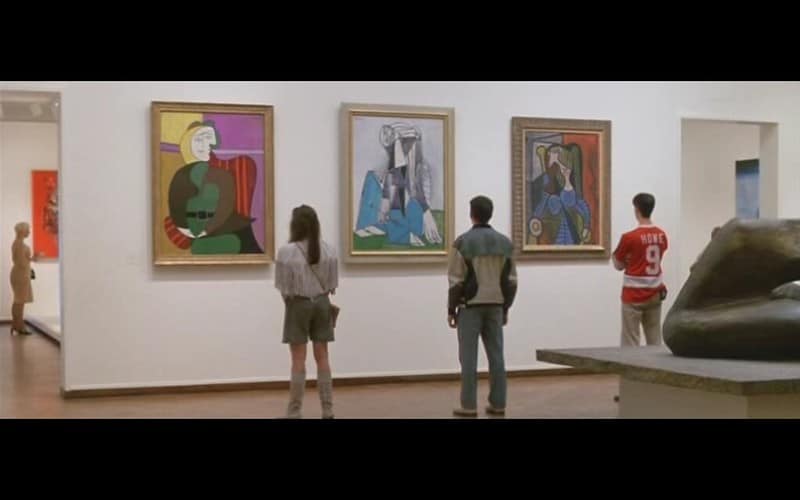
Being careful with people’s time is an underappreciated skill. I’ve got a tip for how not to waste people’s time.
As teachers, we are in a unique position to be stewards of the time we have our students. If you’re working with gifted students, not using time wisely can cause unnecessary classroom management problems.
Do people waste your time?
To help us understand why this is important, let’s consider for a moment how we feel when people waste our time.
I don’t just mean time spent waiting for your check at a restaurant, although that’s part of it. I’m mostly talking about a lack of respect for the idea that when people give you their time, they’re giving you their lives for that moment.
- Have you ever read a book you thought would have been a great pamphlet?
- Have you ever watched a 20-minute video that would have been an excellent 10-minute video instead?
- Have you ever sat in a faculty meeting that should have been an email?
- Have you ever had a parent conference that took an hour that could have been accomplished in fifteen minutes?
My guess is the answer is yes.
Try to think of how you felt in that moment. Were you engaged? Were you interested in thinking critically about what the person was saying?
My guess is the answer is no.
Why wasting time is an issue with gifted students
Gifted kids (and adults) resent time being wasted (who doesn’t?), and I would argue that they resent this at a deeper level than typical learners.
Why? Because their minds move so quickly – or can – that ten minutes wasted to anyone else is like half an hour in gifted years.
That may be an over-simplification, but I’m sticking with it. I don’t mean this to sound arrogant – it’s just the math of the gifted mind.
It’s also the math of the mind with ADHD or ADHD-like issues.
Because of this mind math, gifted students will bore more easily than typical learners, and if you have seen the movie Ferris Bueller’s Day Off, you know where this can lead. I’m pretty sure it’s not the art museum.

The trick to never waste people’s time
My mother was in Toastmasters once upon a time (my mother is a truly exquisite public speaker), and she told me when I was maybe thirteen that when you are speaking to a group of fifty people for an hour, you’d better make sure that what you have to say is worth fifty hours of time because that’s what you’re using.
Think about that: multiply the time it’s taking by how many people. You are using that many hours of human life.
We must constantly remind ourselves to ask, “Is this activity worth this much human life?
For gifted learners, the more teachers streamline their instruction and classroom procedures, the less time they waste. The more teachers try to focus on the essential elements necessary in homework practice, the more time kids have to think and feel and be kids.
One things that make meetings last too long
Interestingly, there’s one thing that consistently makes meetings last too long: people don’t know how to wrap up. We keep repeating ourselves, saying things like, “Great, I’ll email you,” over and over again.
If you can decide ahead of time on a way you will extract yourself from meetings (even informal ones conducted while leaning against a doorway), you will save yourself hours of time over the course of your life.
Consider statements like:
- Thank you for your time. I’ll follow up on all we’ve discussed and get back to you by _______.
- I appreciate your hearing me out. Have a great day.
- This has been very productive. Thank you for the ideas you’ve shared. I look forward to speaking with you again.
These kinds of statements make it clear the meeting or discussion is over, and they are very polite.
Five steps to make good use of people’s time
- Identify small ways in which you may be inadvertently wasting others’ time and try to correct it. Do you say “um” a lot? Do you take too long to take roll? Are you often late to meetings?
- Think about my mom’s golden rule, and make sure that if you’re taking an hour of thirty students’ time, you’re giving thirty hours’ worth of instruction for it.
- Make sure you’re moving quickly enough for your quick-minded students, and if they move more quickly than you can reasonably go, let them move ahead at their own pace without a leash. Read more about acceleration.
- Differentiate wherever possible so that people who need longer explanations get them, while other students can get to work.
- When you are going to have a discussion, list your key points ahead of time and give yourself a time limit for how long you will take to explain each one. Be sure to prepare your exit line.
In this picture, you can see one of the really important things gifted kids can do with their time if it’s not being wasted by adults…This is my German foreign exchange student, Malte, reading in the backyard on an exceptionally delicious winter day when he didn’t have five hours of homework.




